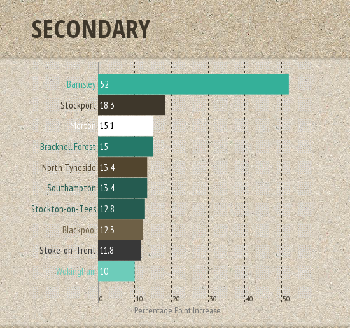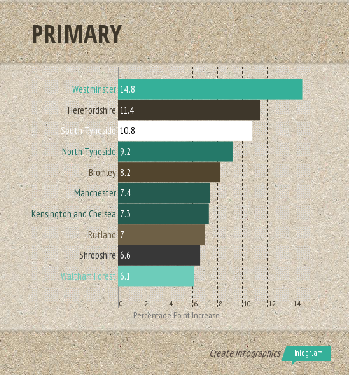
In 2013 Ofsted published ‘The framework for the inspection of local authority arrangements for supporting school improvement’. The publication not only reiterates the importance of local authorities and their duties to schools, academies and children, but also prompted further inspection of LAs. Many have now been inspected by Ofsted and children’s services directors at some LAs have received letters indicating that improvements can be made. Perhaps this wasn’t unexpected as LAs have statutory duties, are ‘permanent’ so can act as a safety net, have a duty of care to children within their authority and the DfE acknowledges that intervention is required if an academy were to fail.
Local authority school improvement models
A little while back, Crossley-Holland suggested that it is still within the hands of LAs to fulfil such a service, and in his later work he discusses three organisational forms that LAs can adopt; ‘traditional’, ‘outsourcing to private organisations’ and ‘outsourcing to best of breed schools’. From a simplistic perspective perhaps the models would look a little like this:
Some progressive local authorities in England have started to develop these new organisational models to deliver their roles in school improvement. Take Wigan for example, where they have adopted a model of school-school support, or Hertfordshire, which set up Herts For Learning (formerly The Hertfordshire Learning Trust). But which local authorities are showing improvement?

One measure upon which local authorities are judged in the media, and by Ofsted, is the percentage of pupils in a good or outstanding school. The Ofsted Annual Report and Data Dashboard do provide great statistics on school inspections and local authority performance. Unfortunately, they only include inspections up to August 2013, and therefore the current national picture is not accurately reflected. However we can get information from independent sources and compare that to Ofsted’s data.
This is what we have done in the top graphic shown here. The first image shows local authorities that have seen big increases in the percentage of pupils attending good or outstanding secondary schools, in the LA’s geographic area. We can see from the graphic that Barnsley and Stockport have seen large percentage point increases between August 2013 and 2nd March 2014.
The second image is similar but it shows local authorise that have seen big increases in the percentage of pupils attending good or outstanding primary schools, in the LA’s geographic area. Again we can see from the graphic that Westminster, Herefordshire, South Tyneside and North Tyneside have all seen large percentage point increases.
The statistics are just one perspective. Ofsted actually looks at contextual information, attainment data and the situation on the ground at local authorities. In addition, school improvements can be due to many other factors beyond the local authority. However if local authorities have a role to play then having up to date statistics visible to the media seems sensible.
Are you a head of school improvement at a local authority?
You may be interested to know that the LGA and the NCER are running a seminar on the strategic use of education data on the 8th April, London.
This seminar will enable local authorities to share best practice about the Ofsted local authority inspection process, school improvement structures and functions and contribute to national discussions on management information system developments. Is your local authority planning to attend?
Come and say hello because we’ll be there too.
To find out more about the LGA, NCER and the seminar, visit:
http://www.local.gov.uk/schools-and-education/-/journal_content/56/10180/5879496/ARTICLE
A number of links were used as inspiration for this article. You might find them useful too:
- ADCS (2012) The missing link: The evolving role of the LA in school improvement http://www.adcs.org.uk
- Crossley-Holland, J. (2012) The future role of the local authority http://www.adcs.org.uk
- Crossley-Holland, J. (2012b) Case studies: Innovative local authority school improvement approaches http://www.adcs.org.uk
- Department for Education (2013) Intervention in academies https://www.gov.uk
- Hill, R., Dunford, J., Parish, N., Rea, S. and Sandals, L. (2012) The growth of academy chains: implications for leaders and leadership http://dera.ioe.ac.uk
- LGA (2013) The council role in school improvement: Case studies of emerging models http://www.local.gov.uk
- OECD (2010) Viewing the united kingdom school system through the prism of PISA http://www.oecd.org/pisa/46624007.pdf
- Pritchard, D. (2012) Schools causing concern – a research project. http://www.adcs.org.uk/
- Pritchard, D (2012b) Survey of local authorities and school causing concern http://www.adcs.org.uk


















